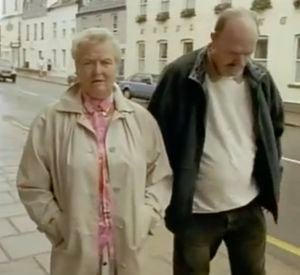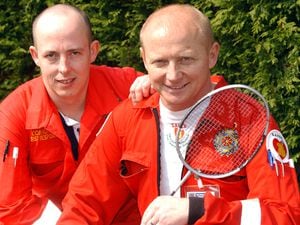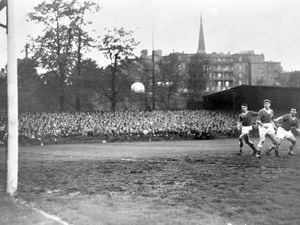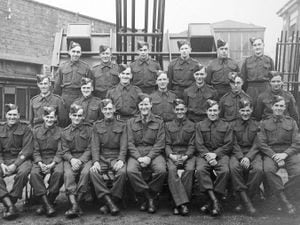Teenage motorcyclist Felice's remarkable wartime story
From evacuee, to military motorcycle dispatch rider, to serious injury in the service of her country.

That was the wartime story of teenage Felice Dowden whose tale we can now shed a little more light on thanks to her 71-year-old son Ian Waterman, and Shropshire genealogist John Paul Jeffels whose detective work was key to us tracking Ian down.
Felice was in uniform and just 18 when she was featured in a report in the Star in November 1941 which was subject to wartime censorship and did not even give her surname.
We published that 1941 picture of her on her Matchless motorcycle the other day hoping to find out more about her and where in our patch she was serving at the time.

Mr Jeffels was quickly on the case and provided the crucial information that she hailed from the Channel Islands and her married name was Waterman, as well as the names of her children, through which we were able to get in touch with Ian, who lives near Lyme Regis, and uncover both her – and Ian's – remarkable stories.
Alas, one thing we have not been able to find is where in the West Midlands she served, as Ian simply does not know. The only clues in the report were that she was a motorcycle dispatch rider "in a West Midland Anti Aircraft Motor Transport Company, ATS," (that is, Auxiliary Territorial Service) and that her billet was in "a former old manor house."
Ian told us: "She was a very private lady and never talked at great length about any of this really.
"She left Jersey as an evacuee, I believe in 1940. There were eight children in all and some were much older and already serving in the forces. The evacuees went to the Midlands area, I don't know where."
Young Felice went into FANY, the First Aid Nursing Yeomanry, before joining the women's branch of the Army, the ATS, and becoming a motorcycle dispatch rider.
"Her father Albert was a motorcyclist but as far as I am aware she had never ridden one.
"All she ever said about where she served was that it was in the Midlands, going back there after her initial training which I believe was around Tidworth and Middle Wallop."
With his mother never having kept any documents or speaking much about her wartime service, Ian does not know many details, but he said: "I believe she enjoyed doing what she did but it all came to a very sad end.
"She was doing a routine ride, a delivery, and was overtaking a lorry and just as she did so the lorry pulled out sharply in front of her to avoid a dog which had run into the road and hit mum off her motorbike.
"It was a bad accident and I believe she had two broken legs and her helmet had to be taken off her surgically. She was in hospital for a long time and it ended her career as a dispatch rider."
Shortly after the war she married Arthur Waterman and had four children, living in the Portsmouth area.
"My mum eventually ended up on the Channel Islands again in her later life. She showed absolutely no interest at all in motorbikes once she had stopped being a dispatch rider."
However, Ian added: "On her 80th birthday a grandson turned up on a motorbike and she took great delight in sitting on it."
Felice's experience after her terrible accident seems to have given her a special understanding of Ian's own teenage trial when, aged 19, he suddenly went down with an extremely rare condition which has been described as him "losing his body" and "losing his sixth sense."
His case has been the subject of television programmes, books, articles, and scientific and academic studies. An auto-immune reaction which is thought to have been triggered by an infection caused him to lose his ability to know where his body was and what it was doing. The effect was devastating, confining him to a wheelchair, although he was not paralysed in the traditional sense.
Defiant, through sheer grit and determination he was able to train his brain to control his movements, and learnt how to sit, stand, and walk.

"My mother was brilliant. She was terribly empathetic with my situation. She seemed to understand what I was going through. She was well suited to sorting me out and helping me through my early stages. She had had a really tough time with her own experience and I think that gave her an insight and understanding."
Felice died in February 2009.
She had of course been aware that her picture had featured in the Star back in 1941.
"My grandmother, her mother, had a copy of it and had the picture on her wall."
Sadly at some stage it was lost, but we have been able to supply Ian with an electronic copy of the article and picture to restore that missing part of family history.





